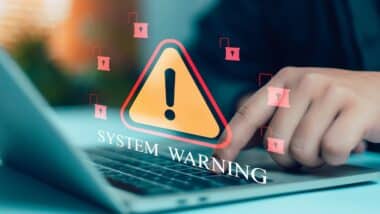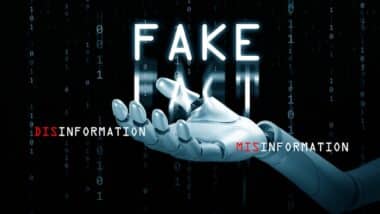 The Department of Justice announced that an Orlando nursing center has agreed to pay $1.5 million to settle a qui tam lawsuit, alleging various counts of Medicare fraud.
The Department of Justice announced that an Orlando nursing center has agreed to pay $1.5 million to settle a qui tam lawsuit, alleging various counts of Medicare fraud.
Conway Lakes Health & Rehabilitation Center was named in the qui tam lawsuit, along with partial owner and president Jeffery Cleveland, partial owner and senior vice president Geoffery Fraser, and an Orlando based orthopedic surgeon Dr. Kenneth Krumins. The Center allegedly facilitated a kickback arrangement that evolved into an organized Medicare fraud scheme.
According to WKMG ClickOrlando, the alleged kickback scheme involved the rehab center allegedly paid physicians for referrals for various services offered by the center.
These services included nursing, rehabilitation, and at home health services, with former employee and whistleblower Jonathan M. alleging the kickback arrangement was not beneficial to patients and only focused on the financial profits for the rehabilitation center.
The qui tam lawsuit argued that federal anti-kickback law “prohibits any person or entity from offering, making, soliciting, or accepting remuneration, in cash or in kind, directly or indirectly, to induce or reward any person for purchasing, ordering, or recommending or arranging for the purchasing or ordering of federally-funded medical goods or services.”
The qui tam lawsuit also alleged that many of these patients in this alleged kickback scheme were Medicare and TRICARE patients, which meant the rehabilitation center could receive compensation from these federal health programs.
Overview of Healthcare Fraud
Medicare fraud is one of the most prevalent forms of healthcare fraud in the United States, with companies often employing various forms of billing fraud to receive compensation from the federal government. Among the most common fraudulent actions includes fraudulent upcoding in medical billing, or arranging an illegal kickback service between physicians and providers.
It is important to note that a person can be a whistleblower if they witness fraudulent actions and wish to report it to federal government, but they must be the primary source of information. In addition, it is important to remember that each state has its own policies and statutes surrounding qui tam cases.
Florida allows for “at-will” employment in which employees can be fired for any time for any reason. There are exceptions to this rule when it comes to the False Claims Act. In addition, Florida legislature protects private employees against any whistleblower retaliation.
In general, whistleblower protection prohibits companies from using certain forms of retaliation to intimidate employees from reporting any alleged fraud they witnessed.
According to the U.S. Department of Labor, retaliation could include withholding pay, denying promotions, and wrongful termination, all of which were allegedly done in an attempt to silence employees. These acts are illegal because whistleblowers are one of the most effective tools in preventing fraud, helping ensure that federal funding goes to the American people.
Experts involved in this qui tam lawsuit emphasized the importance of Jonathan’s participation as a whistleblower, stating collecting the evidence would not have been as easy without him. Jonathan is set to receive $267,000 for his role as a whistleblower in this qui tam lawsuit.
“Mr. Montes de Oca was able to show us how the fraudulent scheme was set up and provide us with important documentation to support his allegations,” lead investigator Lee Walters stated.
This Qui Tam Lawsuit is Case No. 6:16-cv-1374-ORL-37GJK in the Middle District of Florida.
In general, whistleblower and qui tam lawsuits are filed individually by each plaintiff and are not class actions. Whistleblowers can only join this investigation if they are reporting fraud against the government, meaning that the government must be the victim, and that the alleged fraud should be a substantial loss of money.
Do YOU have a legal claim? Fill out the form on this page now for a free, immediate, and confidential case evaluation. The attorneys who work with Top Class Actions will contact you if you qualify to let you know if an individual qui tam lawsuit or whistleblower class action lawsuit is best for you. Hurry — statutes of limitations may apply.
ATTORNEY ADVERTISING
Top Class Actions is a Proud Member of the American Bar Association
LEGAL INFORMATION IS NOT LEGAL ADVICE
Top Class Actions Legal Statement
©2008 – 2026 Top Class Actions® LLC
Various Trademarks held by their respective owners
This website is not intended for viewing or usage by European Union citizens.
Get Help – It’s Free
Join a Free Whistleblower, Qui Tam Lawsuit Investigation
If you believe that you have witnessed fraud committed against the government, you may have a legal claim. Whistleblowers can only join this investigation if they are reporting fraud against the government, meaning that the government must be the victim, and that the alleged fraud should be a substantial loss of money.
See if you qualify to pursue compensation and join a whistleblower lawsuit investigation by submitting your information for a free case evaluation.
An attorney will contact you if you qualify to discuss the details of your potential case.
PLEASE NOTE: If you want to participate in this investigation, it is imperative that you reply to the law firm if they call or email you. Failing to do so may result in you not getting signed up as a client or getting you dropped as a client.
Oops! We could not locate your form.













One thought on Conway Lakes Health & Rehabilitation Center to Pay $1.5 Million to Settle Medicare Fraud Allegations